- Home
- Our Work
We provide scientific and technical advice on the development, planning and implementation of the activities of the Sub-Commission.
- UN Ocean Decade
- UN 21: Marine Spatial Planning
- UN 22: Stem of Asia’s Riverine Plastic Emission
- UN 23: Accelerating the Capacity Development Transformations: Regional Network of Training and Research Centers
- UN 24: Explore the Strongest Ocean Current in the Western Pacific: CSK2
- News
- Events
Discover the latest and up-to-date news and headlines from all over the WESTPAC region
- Resources
We serve as a unique international platform to advance marine scientific knowledge, and catalyze multi and cross-disciplinary collaborations among its Member States
- About Us
We promote international cooperation and to coordinate programmes in marine research, ocean observations and services
Contact Us

IOC Sub-Commission for the Western Pacific (WESTPAC)
Advancing knowledge and cooperation for a healthy ocean and prosperous society

- Home
- Our Work
We provide scientific and technical advice on the development, planning and implementation of the activities of the Sub-Commission.
- UN Ocean Decade
- UN 21: Marine Spatial Planning
- UN 22: Stem of Asia’s Riverine Plastic Emission
- UN 23: Accelerating the Capacity Development Transformations: Regional Network of Training and Research Centers
- UN 24: Explore the Strongest Ocean Current in the Western Pacific: CSK2
- News
- Events
Discover the latest and up-to-date news and headlines from all over the WESTPAC region
- Resources
We serve as a unique international platform to advance marine scientific knowledge, and catalyze multi and cross-disciplinary collaborations among its Member States
- About Us
We promote international cooperation and to coordinate programmes in marine research, ocean observations and services
Contact Us

Accessibility Statement
UNESCO Access to Information Policy
The Policy
The United Nations Educational, Scientific and Cultural Organization (UNESCO) is committed to making information[1] about its policies, strategies, programmes and operations accessible to the public. The UNESCO Access to Information Policy (hereinafter referred to as the “Policy”) outlines the principles and modalities guiding this approach.
UNESCO is dedicated to freedom of information and considers public access to information a key component of the Organization’s commitment to openness and transparency and its accountability vis-à-vis stakeholders. UNESCO recognizes that there is a positive correlation between a high level of transparency through information-sharing and public participation in UNESCO-supported activities.
The Policy is guided by the presumption that any information concerning UNESCO’s policies, strategies, programmes and operations as described in Part II is in principle to be made accessible to the public. Exceptions to accessibility are outlined in Part III of this Policy. This Policy applies to the UNESCO Secretariat as a whole, including UNESCO Category I entities.
Public Access
The public may consult UNESCO information that is normally made accessible through various means, inter alia through the UNESCO websites (www.unesco.org and www.unesco.int), the UNESCO transparency portal [2], and the UNESCO information services.
The following categories of UNESCO information are available for public access:
- General information about the role and functions of the Organization
- Public statements by the Organization, including statements by the Director-General
- The Organization’s main strategy and programme/ budget documents
- Documents of public sessions, including decisions taken and summary records, of the Governing Bodies (Executive Board and General Conference)
- Information on UNESCO’s Regular Programme and extrabudgetary activities
- UNESCO Country Programming Documents (UCPDs)
- General information about UNESCO extrabudgetary projects
- Audited financial statements of the Organization
The following categories of UNESCO information are available for public access:
- Financial information on programme budget execution as published and reported to the UNESCO Executive Board every six months.
- Financial Information on individual projects (available on the UNESCO transparency portal).
- Status of Member States’ payment of assessed contributions as published monthly on the UNESCO website.
- Annual financial information on nature of funding, donors, expenditures as available on the UN CEB website
Procurement information:
Recipient and value contracts awarded over US$150,000 as published on the UNESCO Procurement Portal Evaluation reports on programmes and projects Final reports of the External Auditor Results of all internal audits Technical publications and papers, such as studies, reports and working documents of the Secretariat Archives (in compliance with established rules in UNESCO’s Administrative Manual, see Annex)
Exceptions
UNESCO is committed to openness and transparency. However, the effective functioning of the Organization, confidentiality concerns and the need to protect its staff, stakeholders and partners require that some information cannot be disclosed. This Policy is consistent with the provisions in the relevant item of UNESCO’s Administrative Manual.
Categories of information on which there will be restrictions on access include the following:
UNESCO is committed to openness and transparency. However, the effective functioning of the Organization, confidentiality concerns and the need to protect its staff, stakeholders and partners require that some information cannot be disclosed. This Policy is consistent with the provisions in the relevant item of UNESCO’s Administrative Manual.
Request for information
Information that is not accessible through UNESCO’s websites (www.unesco.org and www.unesco.int) may exceptionally be made available upon request
Such requests should be directed to:
Access to Information Desk
Division of Public Information
UNESCO Address : 7, Place de Fontenoy, 75007 Paris, France
Email : Access-to-Information@unesco.org (link sends e-mail)
Every request will be acknowledged. A response will normally be provided within 30 calendar days of receipt. For information requests that involve the research and/or reproduction of material, UNESCO may charge a fee for material and labor cost, which will be communicated to the requester and will have to be paid in advance.
The disclosure of information in response to a request for access, will not constitute a waiver, express or implied, of any of the privileges and immunities of UNESCO, pursuant to the 1947 Convention on the Privileges and Immunities of the Specialized Agencies and Annex IV thereof, or otherwise.
UNESCO may partially or wholly deny a request, as follows:
In accordance with exceptions set out or referred to in this Policy;
If the request would place an excessive burden upon UNESCO’s resources;
If the request is vexatious and/or repetitive.
If a request is rejected, written justification for the decision to refuse access will be provided along with information on the appeal procedure provided for in Part V below.
Review and appeal process
If a formal request for information is denied, the requester may ask for a review of this determination by the UNESCO Access to Information Panel (hereinafter referred to as “the Panel”). The members of this Panel are appointed by the Director-General.
The Panel’s mandate is to assist the Director-General in monitoring the implementation of the Policy and to consider and review appeals relating to a request for information.
Requests for review to the Panel should be directed to: InformationPanel@unesco.org
Every request for review will be acknowledged within 30 calendar days. The Panel shall review the denial of requests to provide access to a document or portion of a document, and provide a final determination within 90 calendar days of receipt of the appeal.

